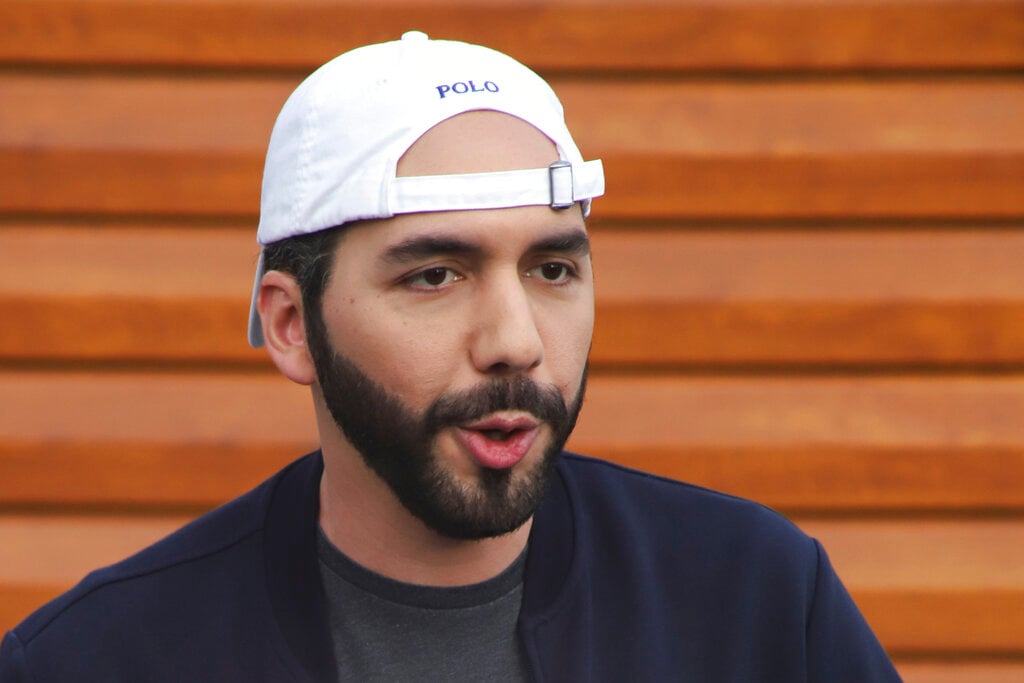Analysis
Latin America is eager for the ‘Bukele model,’ trading human rights for safety
According to the Latinobarómetro NGO, Latin America is currently suffering from a ‘democratic recession.’ There is no doubt that the ‘Bukele model’ is the most seductive and dangerous.

Najib Bukele has called himself “the world’s coolest dictator.” And it’s probably true. After a full-blown institutional coup, changing the leadership of El Salvador’s Supreme Court, he ran in unconstitutional presidential elections and won them hands down on Sunday. He got more than 85 percent of the vote, 10 times more than the runner-up, the candidate of the FMLN former guerrilla front. His party, New Ideas, garnered 58 percent of the 60 seats up for election.
“The entire opposition has been pulverized,” he declared, boasting that “it will be the first time that one party alone rules a country in a completely democratic system.”
But it all came at a heavy price, as pointed out by pastor and human rights advocate Noah Bullock: to win, Bukele created a “tropical gulag,” his “model” amounting to “a repressive system in which the state can do whatever it wants to whomever it wants.” The military-guarded mega-prison is a symbol for the whole country, a place where it’s easy to end up, without much bother about constitutional guarantees, and where it’s easy to disappear. It is known that there are thousands of innocent people incarcerated, accused of being pandilleros.
According to the Latinobarómetro NGO, Latin America is currently suffering from a “democratic recession.” There is no doubt that in such a context, what is already being called the “Bukele model” is the most seductive and dangerous one out there in the various countries of the Latin American subcontinent.
In Chile, Bukele has the second-highest approval rating among all world leaders. In Argentina, President Milei praises him every chance he gets. In Peru, the vice president of Parliament, Hernando Guerra, quipped that “the country doesn’t need a Bukele, it needs two of him.” In Colombia, the radical right is threatening to remove progressive President Gustavo Petro by force. The linchpin of this radical opposition is represented by the governors, mayors and representatives of the most important regions. Andrés Beltrán, mayor of the capital of the Santander region, has proposed the construction of a Bukele-style mega-prison. Dilian Francisco Toro, the newly-appointed governor of Valle del Cauca, is proposing police-run government in various municipalities and to reactivate the Battallones Contrainsurgentes de Alta Montaña, responsible for thousands of “false positives” (supposed guerrillas killed who were not in fact guerrillas) during the time of President Uribe.
But it is especially in Ecuador that President Daniel Noboa is attempting to follow in the footsteps of his Salvadoran counterpart. With the aim of fighting organized crime, pervaded by the heavy presence of Colombian and Mexican narcos cartels, he has issued the Internal Armed Conflict Decree on January 9. As in El Salvador, the decree equates the security of citizens with state security and the fight against crime becomes “an unconventional internal war.” In late January, Noboa announced with satisfaction that the homicide rate had dropped from 27.8 per day to 10.6, and that “the fight against crime has great support among the population.”
“The fight against organized crime needs a holistic and social-based strategy that must be much broader than militarization,” counters Ecuadorian opposition economist Pablo Davalos. One of the causes is the dollarization of the country and the law pushed by former President Guillermo Lasso that “allows the laundering of capital from narcos.” Thanks to the money obtained from narcotics and money laundering – and unlike the relative poverty of El Salvador’s pandillas callejeras – Ecuador’s criminal groups are much better armed and dangerous on a social level. Therefore, Davalos argues, the Bukele model is not exportable.
However, as other analysts argue, the strong support enjoyed by the “Bukele model” is based on the fact that frightened citizens, disillusioned with institutions, feel that there are no other viable alternatives that can bring swift results against crime. As a result, as Latinobarómetro says, human rights are “relegated to the sidelines.”
Originally published at https://ilmanifesto.it/bukele-quella-recessione-democratica-che-entusiasma-lamerica-da-nord-a-sud on 2024-02-07
